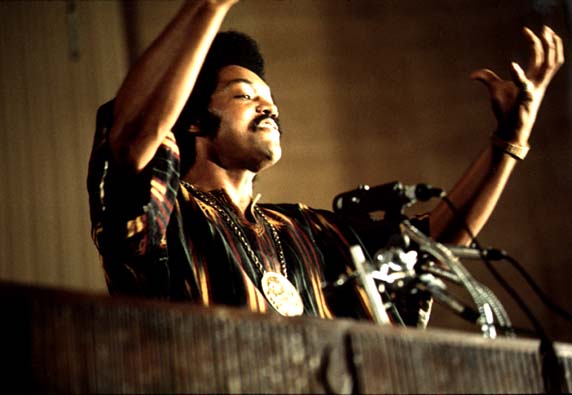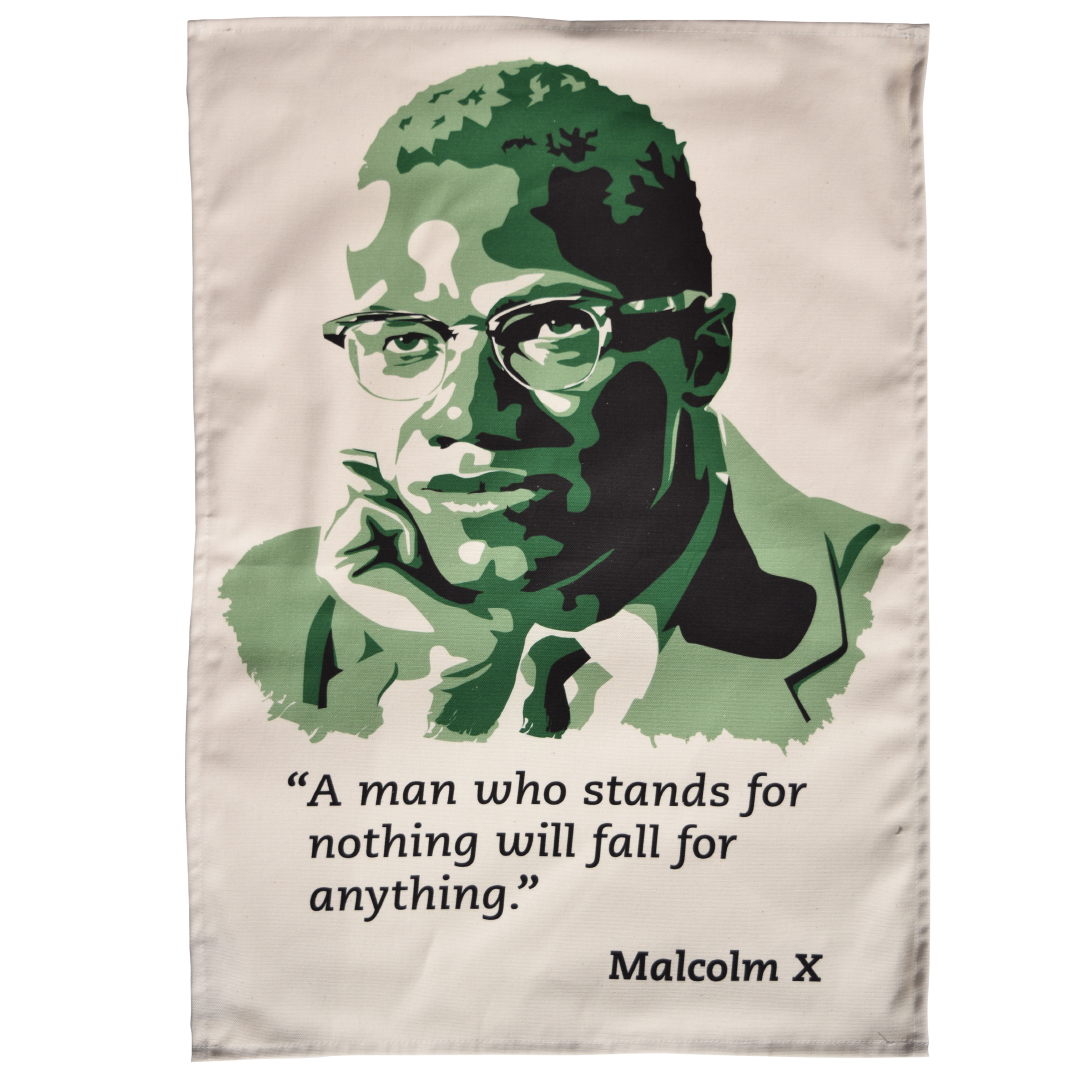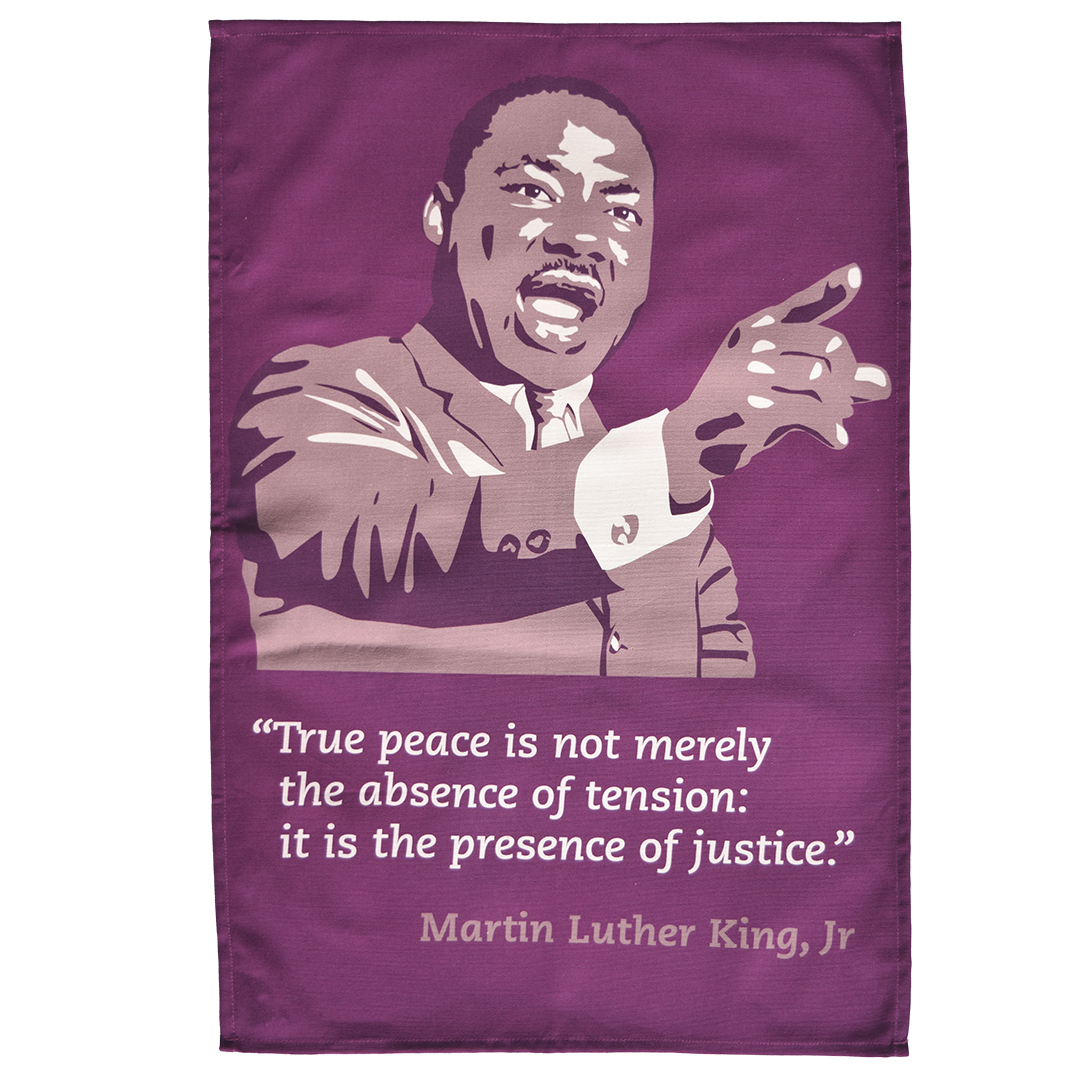He Stands With You: Jesse Jackson and the Rainbow Coalition
Posted by Pete on Oct 8th 2021
Born on this day in 1941, Jesse Jackson was one of the most important political campaigners of the 20th century.
By 1970, political radicalism in the US was facing a leadership crisis.
The 1960s had taken a bloody toll: Malcolm X, Bobby Kennedy, Martin Luther King Jr.
But the struggle had to go on – racial injustice, patriarchy, and class oppression weren’t taking a break.
That’s where Jesse Jackson came in.

Jesse Jackson on a radio broadcast in July 1973.
Jesse Jackson came of age in the age of Malcolm X and MLK, when African Americans were fighting tooth and nail for their civil rights.
Jackson was born on this day, 8 October 1941, in Greenville, South Carolina.
His first foray into radical politics was in July 1960: only 18 years-old at the time, Jackson became one of the ‘Greenville Eight’, one of eight protesters arrested for a sit-in at the white-only Greenville Public Library.
The sit-in only lasted 40 minutes, but in the end the protesters won: the Greenville Libraries were integrated, and the charges against the Greenville Eight were dropped.
Jackson had had his first taste of successful political activism.
Having graduated with a sociology degree from North Carolina A&T in 1964, Jackson went to Chicago to study for a masters in theology.
But academia wasn’t cutting it: just three courses short of earning his master’s degree, Jackson dropped out to work full-time for the civil rights movement.
By this point, like Malcolm X, Jackson was already a well-known face in the fight for black liberation.
He’d been there in Selma in 1965, marching for voting rights alongside Martin Luther King.
MLK saw Jackson’s potential, and soon tasked him with setting up a Chicago office for the Southern Christian Leadership Conference (SCLC).
Jackson went on to head up the Chicago branch of ‘Operation Breadbasket’, which highlighted the economic and class-based obstacles faced by African Americans:
‘When we change the race problem into a class fight between the haves and have-nots, then we are going to have a new ball game.’
But when Dr King was assassinated in Memphis on 4 April 1968, the whole movement was left in a mess.
Jackson, who was downstairs when King was shot, was soon in a bitter leadership spat with SCLC veteran, Ralph Abernathy.
This ended in 1971 with Jackson leaving the group, despite being seen by many as King’s natural successor.
Then, from the ashes of the SCLC, rose a broader project: People United to Save Humanity (PUSH).
Jackson may not have replaced King as SCLC leader, but he continued King's legacy in his fight for peace and justice.
View our Martin Luther King tea towel
Building on his work in Chicago, focusing on the intersectionality of race and class issues, PUSH envisaged a wide coalition of the oppressed and exploited to campaign for a better America.
This really came to life in the 1980s.
On 3 November 1983, with the American Left at a low ebb under Reagan, Jesse Jackson announced his candidacy to be president.
He was only the second African American, after Shirley Chisholm in 1972, to run a nationwide presidential campaign.
Jackson’s strategy was a ‘Rainbow Coalition’ of the marginalised – women, the burgeoning
LGBTQ movement, African-, Arab-, Hispanic-, and Native Americans, and the working class which cut across all of them.
His platform was consciously in the tradition of
FDR and the New Deal: a jobs program driven by public investment and a reversal of tax cuts for the top 10% to fund social welfare. In solidarity with the anti-apartheid movement, Jackson also promised to declare South Africa a rogue state.
Jackson may not have won the Democratic nomination, but he still defied all expectations.
In 1984, he came third with 3.3 million votes. And when he ran again in 1988, he came second, with 6.9 million votes, seven primary wins and four caucuses.
The campaigns were electric. At a Chrysler plant in Kenosha, Jackson roared to the gathered United Autoworkers:
‘We have to put the focus on Kenosha, Wisconsin, as the place, here and now, where we draw the line to end economic violence!’
The Rainbow Coalition didn’t get to the White House, but its vision of politics endured.
In March 2020, Jesse Jackson, by now struggling with Parkinson’s, returned to the campaign trail to endorse Bernie Sanders, who had supported Jackson back in 1988:
‘I stand with Bernie Sanders today because he stood with me. I stand with him because he’s never lost his taste for justice for the people. I stand with him because he stands with you.’
Bernie may not have won the nomination, but he was closer than anyone thought was possible.
Jackson’s legacy still burns bright today, and it’s up to us to keep the flame alive – to continue the struggle for a better, more equal world.
As Dr King used to say, the arc of the moral universe is long, but it bends toward justice.
Key dates in Jackson's life:
- 8 October 1941: Jesse Jackson is born in Greenville, South Carolina
- July 1960: Jackson arrested as part of the ‘Greenville Eight’ for protesting segregation
- March 1965: Jackson participates in the Selma to Montgomery marches with Martin Luther King, leading to his posting to Chicago for the SCLC
- 4 April 1968: Martin Luther King is assassinated in Memphis, Tennessee
- 1971: Jesse Jackson leaves the SCLC to found PUSH
- 1983-4: Jackson runs for President, coming a surprise third in the Democratic Primaries
- 1987-8: Jackson runs again for President, coming second in the Primaries with 6.9 million votes


